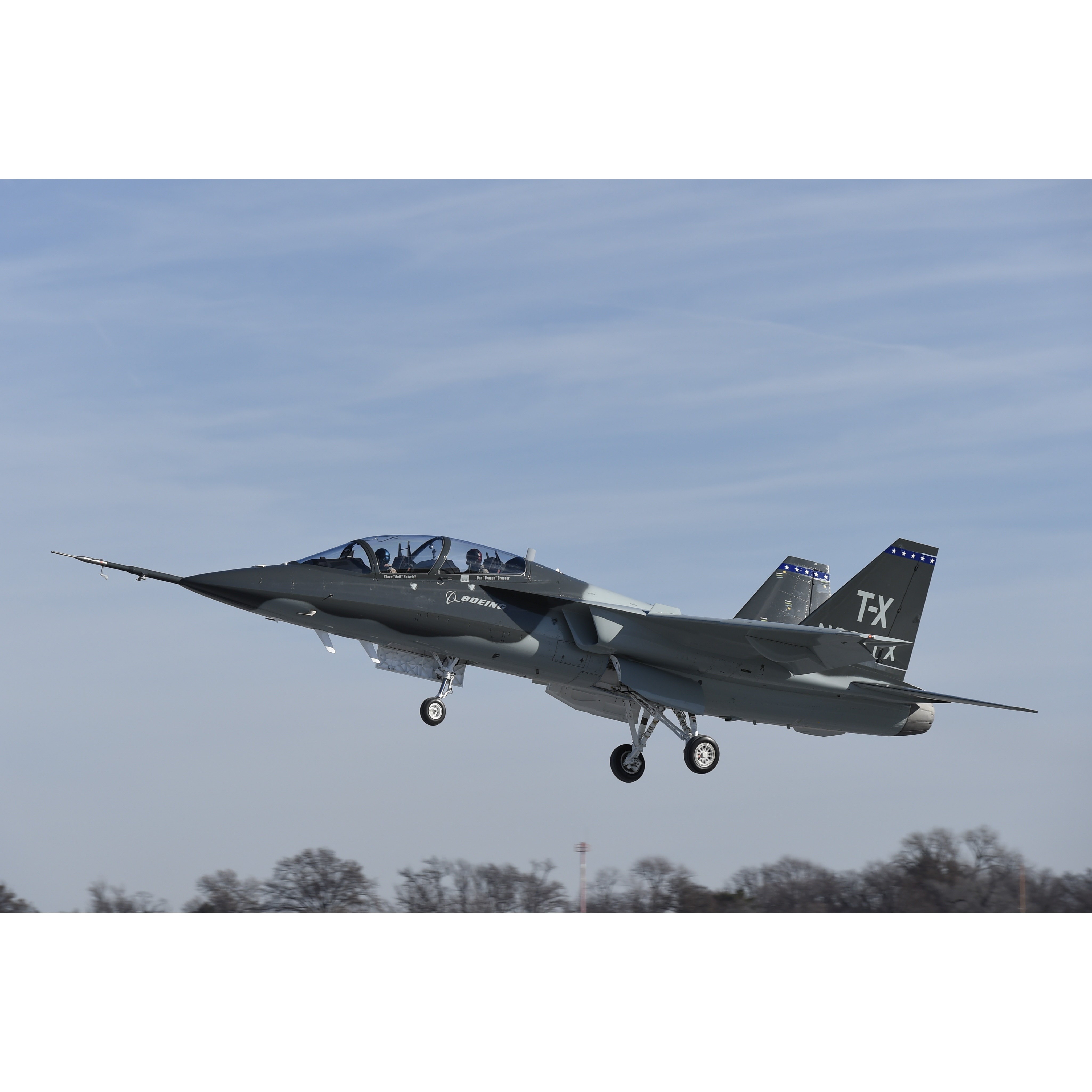Military
As Boeing Prototype Training Jet Takes Off, Textron Rumored to Reenter the Fray

Published:
Last Updated:

Boeing Co. (NYSE: BA) on Tuesday held its first test flight of its proposed new T-X training jet for the U.S. Air Force. The most remarkable thing about the flight is that it occurred just one year after Boeing and its partner, Saab, certified the plane’s design. The design phase took just two years.
Those numbers are roughly equal to the speed of light in the aviation business, when the process can take six to eight years. The Boeing-Saab team has built two prototypes, and the second is due for a first flight next month. A second flight for the first plane is planned in the next few days, according to Boeing.
The U.S. Air Force is expected to release the final version of its request for proposal (RFP) to build a new training jet to replace the decades old T-38 by the end of this year. In addition to Boeing three other designs will compete for the contract, with a fourth reported to be preparing a bid, and even a fifth possibility.
Northrop Grumman Corp. (NYSE: NOC) and its partners, BAE Systems and L-3 Communications Holdings Corp. (NYSE: LLL), are preparing their own clean-sheet design, while Lockheed Martin Corp. (NYSE: LMT) and Korea Aerospace Industries (KAI) are proposing a modified KAI T-50. The third known competitor is Raytheon Co. (NYSE: RTN) and its partner, Italy’s Leonardo, with a modified version of the Italian company’s M-346 trainer.
Earlier this week a team comprised of Sierra Nevada Corp. and Turkish Aerospace Industries was reported to be preparing its own entry using composite parts and a business jet engine to reduce costs.
Aviation Week reported on Tuesday that Textron Inc.’s (NYSE: TXT) aviation division is reconsidering its initial decision to drop out of the competition for the new training jet. According to the report:
The company had hoped to offer a trainer version of its self-sponsored Scorpion armed reconnaissance platform, but the [trainer]’s fighter-like sustained g requirement of 6.5g threshold and 7.5g objective rules Scorpion out, at least in its present configuration. However, Textron says its Beechcraft Defense and Textron AirLand joint venture, the firm responsible for Scorpion, remains engaged with the Air Force T-X program and will closely examine the final list of requirements attached to the RFP before making a decision.
The Air Force contract is expected to call for some 350 planes, and the winning bidder could expect to have a good chance at winning some overseas business as well.
Start by taking a quick retirement quiz from SmartAsset that will match you with up to 3 financial advisors that serve your area and beyond in 5 minutes, or less.
Each advisor has been vetted by SmartAsset and is held to a fiduciary standard to act in your best interests.
Here’s how it works:
1. Answer SmartAsset advisor match quiz
2. Review your pre-screened matches at your leisure. Check out the advisors’ profiles.
3. Speak with advisors at no cost to you. Have an introductory call on the phone or introduction in person and choose whom to work with in the future
Thank you for reading! Have some feedback for us?
Contact the 24/7 Wall St. editorial team.